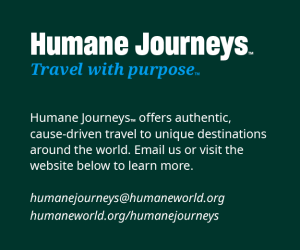Spilling the kibble: What’s the most unusual animal your shelter or agency has helped?
When we asked shelter staffers and animal services officers to share their close encounters with unusual or exotic animals, we got tales about runaway emus, an overly friendly pigeon, a so-called alligator lurking under a dumpster, and more.
We hope you enjoy this inaugural installment of "Spilling the kibble," a column where we invite you to share advice, wisdom and stories from the trenches with your peers.
As you can see from the submissions below, Ace Ventura has nothing on the real-life experiences of animal welfare pros.
Contribute to our next "Spilling the kibble" column: Who’s your animal welfare hero and why? Email us at info@humanepro.org.
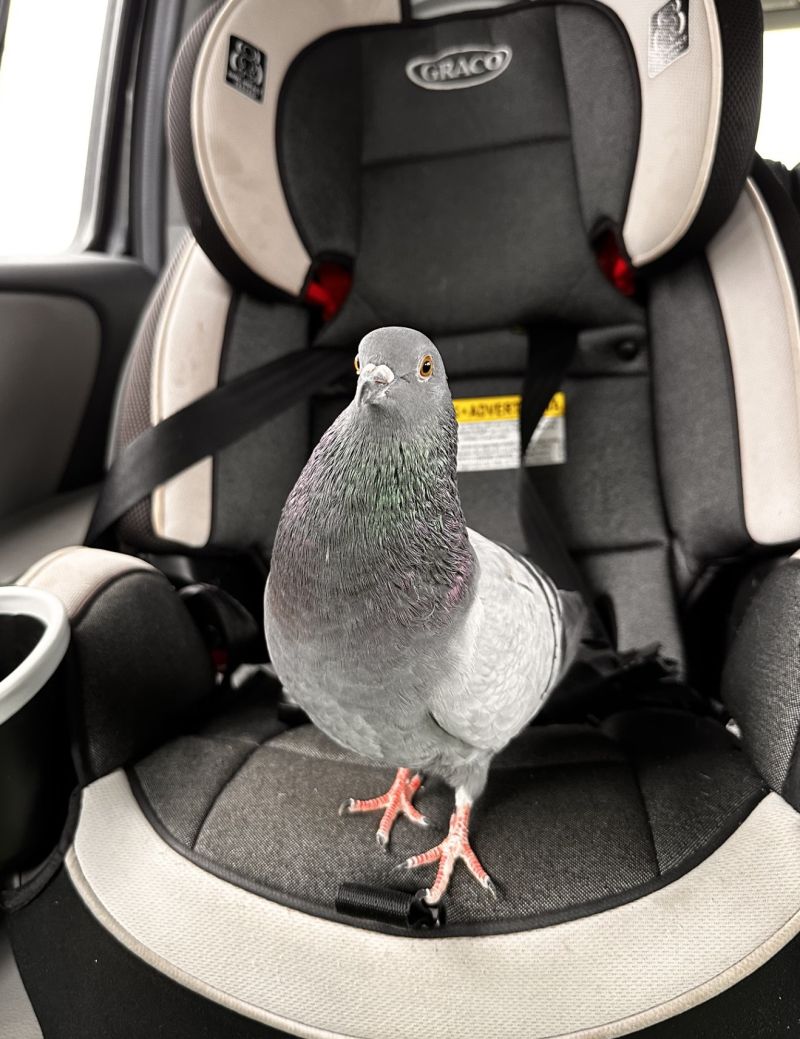 | In April, a very friendly, very silly and very determined pigeon started hanging outside our adoption center. Then she began entering the building by landing on staff members and hitching a ride inside. We would gently usher her back outside, but she just waited for the next staffer to give her a free lift indoors. She also liked to perch on staff members working in our dog yard. We finally decided that with Valley’s love for human companionship, she needed a home. After we posted her story online, she became a national celebrity. Her story appeared in People, The Washington Post and other media outlets. She also caught the eye of a wonderful family who drove all the way from New Jersey to adopt her. Her family reports that Valley is very loved, has roam of the house (when it’s safe) and hitches rides on her new family members’ heads, just like she did here! —Brooke Ciardi, Montgomery County Animal Services and Adoption Center, Derwood, Maryland |
In August 2023, my shelter responded to a large-scale neglect situation, which included a super sweet cow. My shelter takes in dogs, cats and small mammals, and it doesn’t have a facility for farm animals. But no one wanted to leave the cow behind. So with the local sheriff’s help, we loaded her onto a trailer. She and I spent the night in my shelter’s staff break yard. Fortunately, Oinking Acres Farm Rescue and Sanctuary, about three hours from us, agreed to give a home to Bonnie and her goat best friend (who was also removed from the same situation). I went to visit her a couple of months later, and I told myself that she recognized me. I’ve since visited her more than 10 times. Her story warms my heart and makes me proud of my team. We had no room for a cow, but we made it happen. —Mackenzee McKittrick, Vanderburgh Humane Society, Evansville, Indiana | 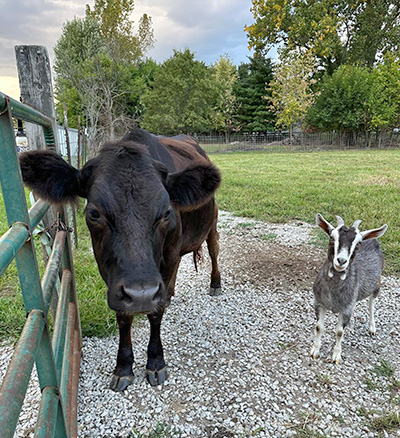 |
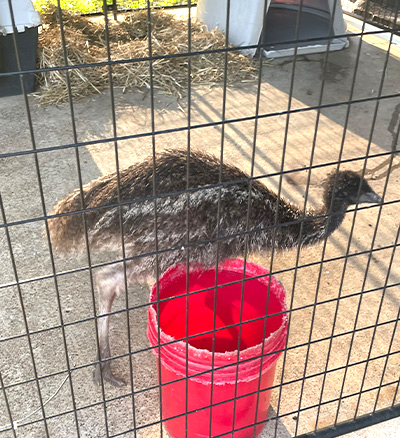 | In June 2024, City of Bowling Green animal control officers were dispatched to a complaint of “very large, scary birds” chasing people in a residential neighborhood. Upon arrival, ACO Jessica Farris discovered two emus had escaped a backyard enclosure and were running amok in the area. One of the birds entered a property where a dog resided. Sadly, he picked a fight he was not able to win and was killed by the dog. The other emu was still running loose, and thanks to Officer Farris’ diligent foot chase was apprehended shortly after. The rogue emu was taken to the Bowling Green/Warren County Humane Society and impounded for running “afowl” of the law, as exotic animals are prohibited in the city limits. We later worked with the owner to rehome the bird to greener pastures at a farm in the county, providing far more room to roam than the small cage he was being kept in here in the city. —Brad Schargorodski, Code Compliance & Animal Protection Division, City of Bowling Green, Kentucky |
Editor's note: Emus—like ostriches, cassowaries and other large flightless birds—can be very dangerous. They have a powerful kick and dagger-like claws.
It was a typical day at our shelter until a good Samaritan called saying they found a duck. As most people would assume, we thought it was a wild duck, and our first response was to tell them to let it be. Then the finder mentioned it was a pet duck, social and domesticated. We had them bring the duck in, and sure enough, this Muscovy duck was full of sass but wanted alllllllll the attention. We shifted gears, not really having a place to house a duck, and built an enclosure in our large bathroom. Within 24 hours, an owner called, MISSING THEIR DUCK! It was a reclaim we never saw happening, but we all were very happy to see the duck return to an owner! —Sydney Mollentine, Humane Society of Greater Kansas City, Kansas | 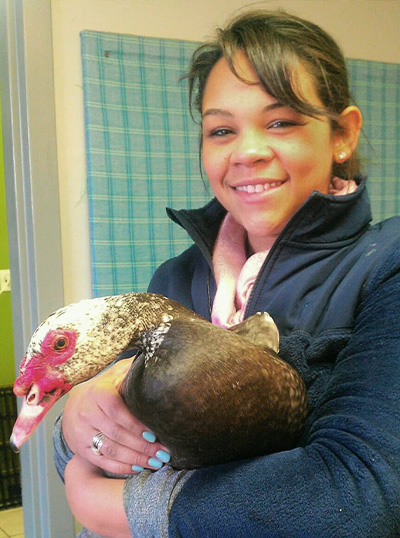 |
In November 2004, Port St. Lucie Animal Control responded to a call about a goat and a kangaroo loose in the northwest portion of the city. Both were captured, but not until a resident was scratched and a car was dented by the duo. Fast forward about a week, we received a call from a man claiming he knew who the owner was. He stated he was the manager for Robert Van Winkle, aka the celebrity rapper Vanilla Ice.
The goat was named Poncho, and the wallaroo (a type of kangaroo) was Bucky Buckaroo. They had been staying at Vanilla Ice’s wife’s grandmother’s house when they escaped their enclosure and went on a walkabout. Both were safely returned to Vanilla Ice but not without some fanfare and a talking to by Florida Fish and Wildlife. —Bryan Lloyd, Port St. Lucie Animal Control Division, Florida
Editor's note: Keeping kangaroos, wallabies, wallaroos and other macropods as pets has become a growing problem across the U.S., as evidenced by an increasing number of escapes that sometimes lead to the animal’s death through predation or being hit by a vehicle on roadways. Some states are considering bans on the private possession of these animals.
 | In 2023, Wichita Animal Services, our public shelter partner on the Murfin Animal Care Campus, took in a stray potbellied pig. The mom of one of our staff members at the time had recently lost her pet pig and wanted to adopt a new one. So when the pig’s stray hold ended, which happened to be on April Fools’ Day, we went to WAS to retrieve her. That’s when we discovered that this pig would scream when you’d pick her up, put a harness on her, try to leash her, or do anything other than let her roam freely. We ended up having to transport her across the campus, from Wichita Animal Services’ building to our facility, in a rolling cart. The pig was one of 39 adoptions that day. —Jordan Bani-Younes, Kansas Humane Society, Wichita |
| Richmond Animal Care & Control received a call for service about an alligator under a dumpster. Upon response, Officer Carrasquillo discovered a very large monitor lizard, whom she trapped and transported back to our shelter. Soon after, the owner reached out, frantically looking for her lizard (named Havoc, which we thought appropriate). They were reunited shortly after impound. —Christie Chipps Peters, Richmond Animal Care & Control, Virginia | 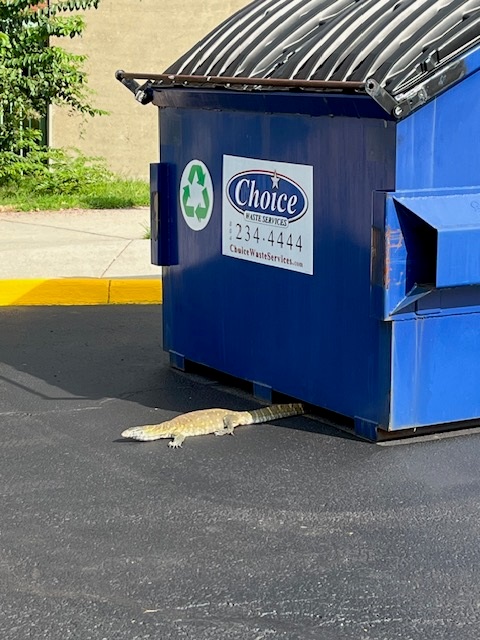 |
Editor's note: In 2023, Richmond passed an ordinance banning the private possession of certain dangerous reptiles.
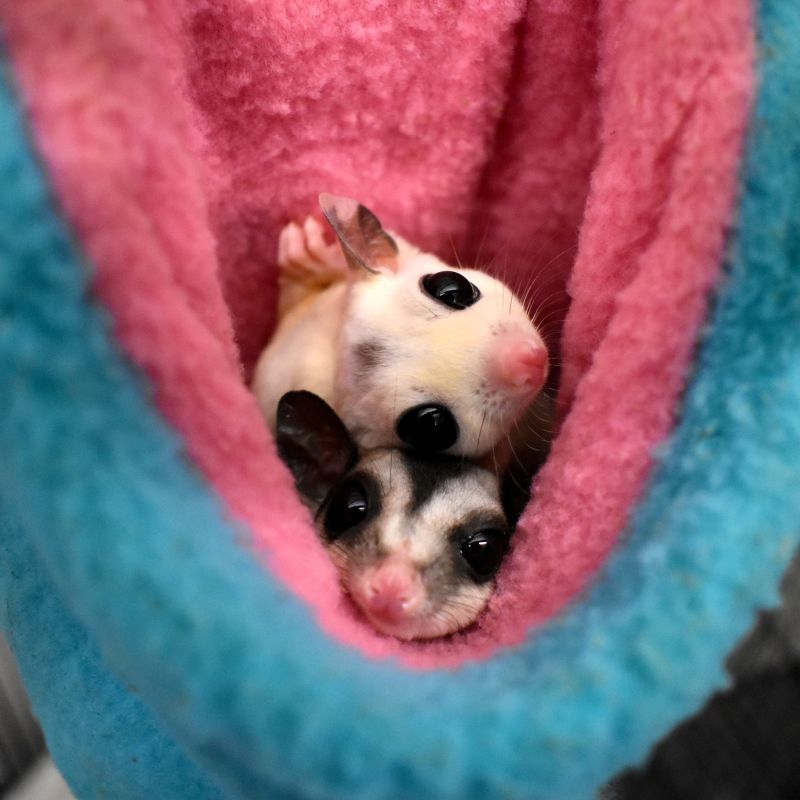 | In 2023, we were a part of a neglect case involving sugar gliders. We took in over 80 of them! —Savannah Alcerro, New Hampshire SPCA, Stratham |
In late August 2024, officers with Boston Animal Care and Control captured a steer (a neutered male cow) who had first been spotted in June and lived in the woods for nearly two months until he was sighted again in August. Our officers installed a temporary pen and were eventually able to lure the steer into the pen with food and water. Once he was secured, BACC reached out to the MSPCA-Angell Nevins Farm equine and farm animal rescue team, who quickly agreed to assist. Over the next several hours, the two teams worked together to build a chute, move the steer through a heavily wooded area, and finally load him into a trailer. The steer, named Moodini, was transferred to the MSPCA at Nevins Farm, where he will be cared for until the organization finds an adoptive home for him. —Alexis Trzcinski, Boston Animal Care and Control, Massachusetts | 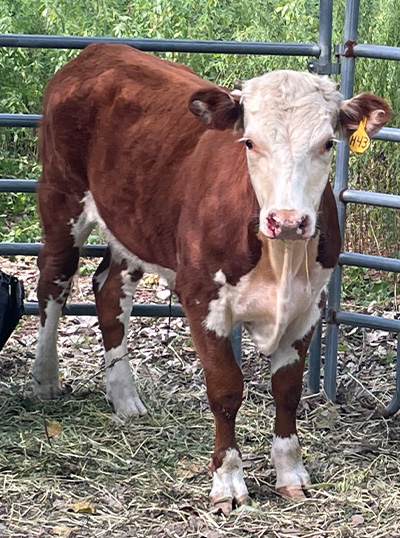 |
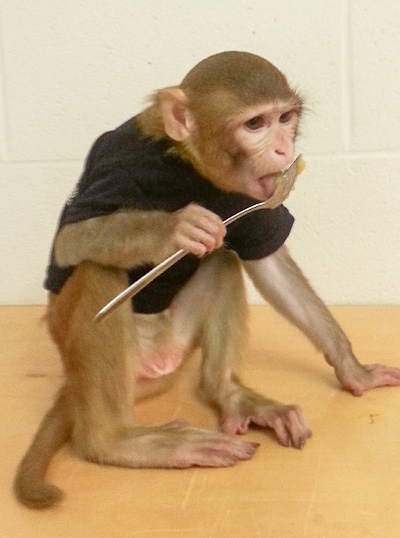 | In March 2015, we received a call about a rhesus macaque named Carter who had escaped his owner’s vehicle in a hospital parking lot and bit an employee who tried to catch him. Our animal control officer was able to capture Carter the next day, and his long sojourn in our shelter began. In an August court hearing, the owner surrendered her ownership rights, and we started searching for a permanent home for Carter. With a grant from Bob Barker’s DJ & T Foundation, Carter was transferred to a primate sanctuary in Texas, where he befriended another rhesus macaque named Tori, also a former pet. It took a team of dedicated staff, multiple organizations and financial support to bring about a happy ending for Carter. His case received a lot of local media attention, raising awareness of the plight of animals in the exotic pet trade. —Melissa Knicely, Charlotte-Mecklenburg Animal Care & Control, North Carolina |
Editor's note: The HSUS opposes keeping wild animals as pets because it causes immense suffering to the animals, endangers public health and safety, and can damage ecosystems through the capture of wild animals or the release of nonnative wild animals who become established as invasive species.
Standard industry mortality rates at exotic animal wholesale facilities are as high as 70% due to poor sanitation, lack of food and water, improper temperatures, high stress levels, overcrowding and inhumane handling. Wild animals can spread bacterial, viral, parasitic and fungal infections that pose serious health risks to people. We urge animal shelters and field services agencies to support local bans on keeping wild animals as pets.
Learn more about the exotic pet trade and its impact on animals, people and the animal welfare field.
